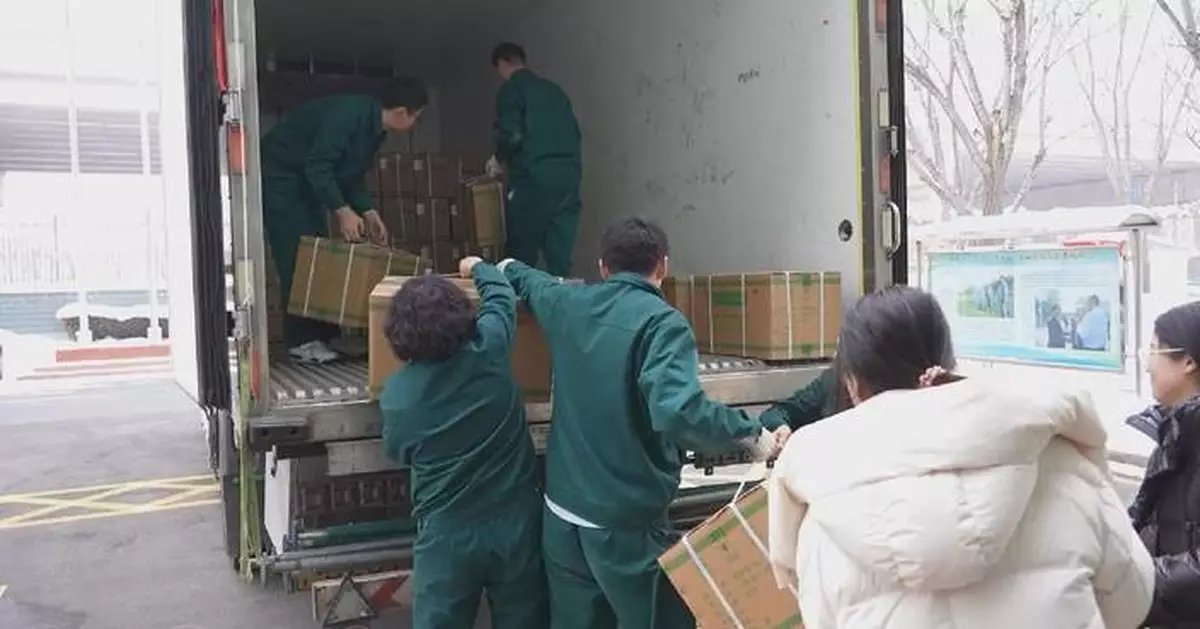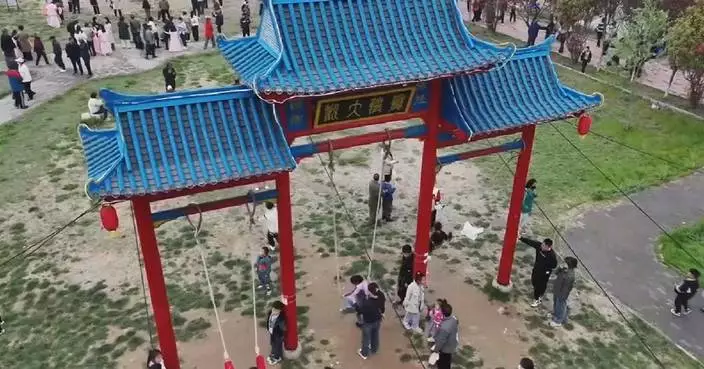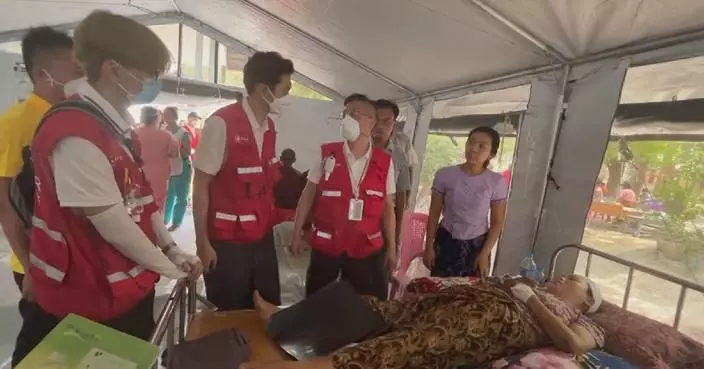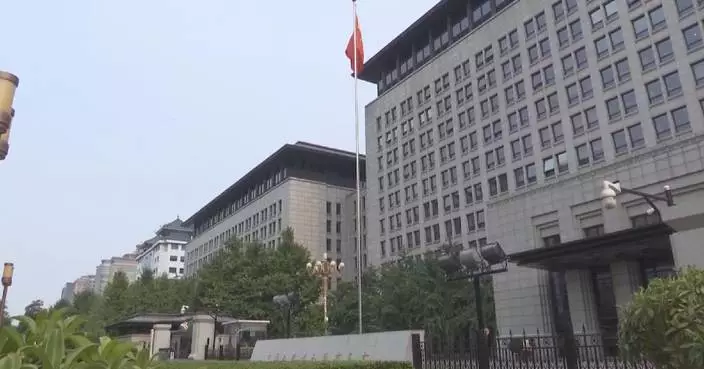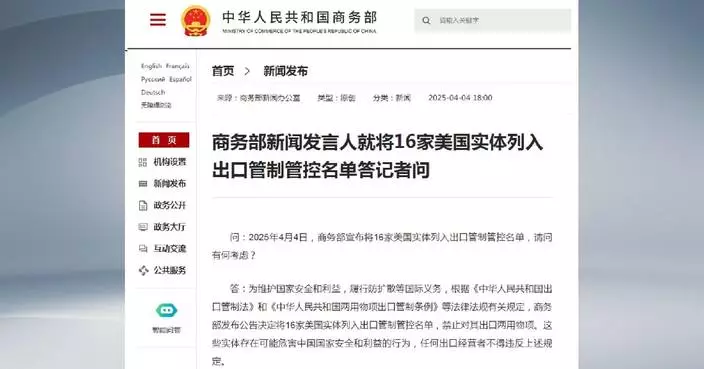Medical support teams and essential relief supplies are being sent to the disaster-hit areas of southwest China's Xizang Autonomous Region following Tuesday's deadly quake, while financial support and donations are continuing to pour in from across the country to aid with the post-disaster work.
The 6.8-magnitude earthquake jolted Dingri County of Xigaze on Tuesday morning, with at least 126 people confirmed to have lost their lives and 188 others injured, while over 3,600 homes have collapsed.
A team of 13 medical specialists from Shanghai, including neurosurgeons, orthopedic surgeons, and anesthesiologists, arrived in Lhasa, the capital of Xizang, on a rapid-response flight on Wednesday afternoon to provide critical care to those affected by the disaster. The flight also carried 7.5 tons of supplies, including cotton-padded clothing, quilts and jackets, helping relocated resident endure the freezing temperatures.
Li Xiantao, deputy director of the Intensive Care Unit (ICU) at Huashan Hospital affiliated with Fudan University of Shanghai, said their current priority is saving those in critical conditions.
"We will mainly focus on rescuing critically ill patients including those with brain injuries, severe ICU cases and patients requiring dialysis," he said.
Furthermore, Urumqi, capital city of northwest China's Xinjiang Uygur Autonomous Region, raised 1.1 million yuan (more than 150,000 U.S. dollars) worth of medical supplies, including common medicines for treating viral colds and respiratory infections, to provide timely medical aid to the affected people.
To support the livelihoods of disaster-stricken residents, Qinghai Province in northwest China urgently allocated 1,000 mobile homes, 3,000 folding beds and 300 heaters.
These supplies were transported from the cities of Xining and Haidong to Dingri County. Qinghai also sent disaster damage assessment specialists to assist in the evaluation of earthquake losses.
Meanwhile, the Sichuan Bureau of Geology and Mineral Resources, along with other departments, dispatched over 90 geological surveyors to the disaster area for geological hazard assessments around the epicenter. Sichuan also organized multiple medical and emergency rescue teams to assist in the relief efforts.
The Communist Youth League of China (CYLC) made arrangements for earthquake relief, including emergency rescue, volunteer services, fundraising, psychological support and post-disaster reconstruction.
On Wednesday, the CYLC allocated 1 million yuan (more than 136,000 U.S. dollars) to its Xizang branch to support its grassroots organizations in their disaster relief efforts.
As of Wednesday evening, the CYLC had donated a total of 25.62 million yuan (nearly 3.5 million U.S. dollars) in funds and supplies to the earthquake-stricken areas.
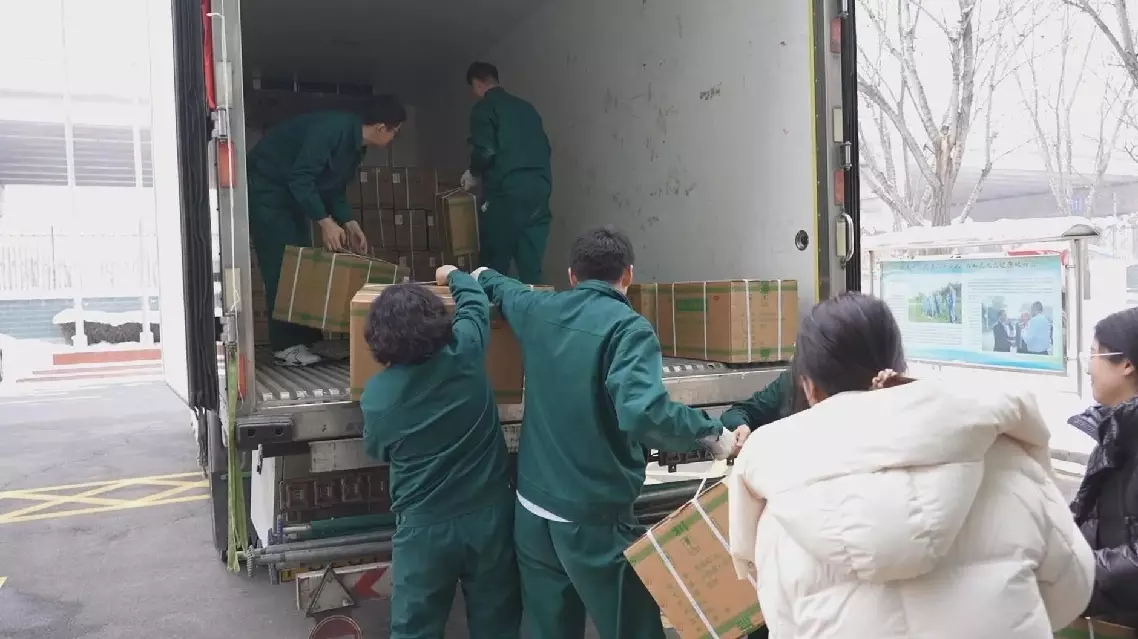
Medical teams, essential supplies reach quake-hit Xizang to support post-disaster relief
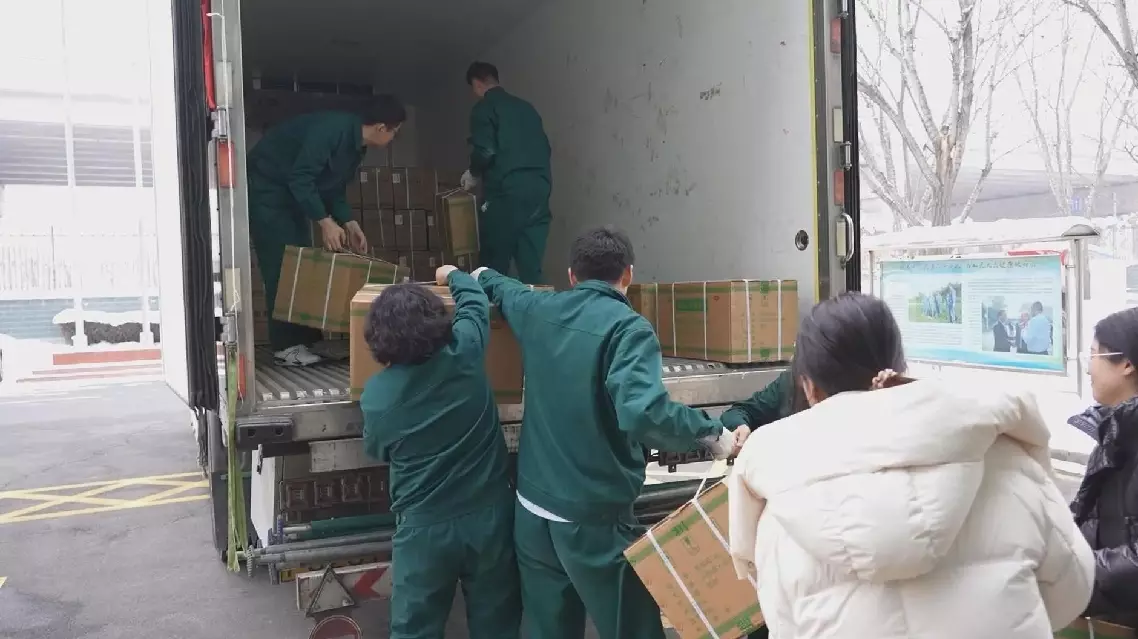
Medical teams, essential supplies reach quake-hit Xizang to support post-disaster relief
A survey released by CGTN to global netizens shows that respondents strongly condemn the U.S.'s unilateral bullying of other countries under the pretext of "reciprocal tariffs," saying that this move may trigger countermeasures from other countries and eventually evolve into a "tariff world war," seriously impacting the world economy.
The U.S. claims that it has suffered losses in international trade and is raising tariffs on all trading partners under the pretext of "reciprocity," aiming to reduce the trade deficit. However, 81.03 percent of global respondents do not agree with this, believing that such measures will not achieve the expected results. During his first term in office, U.S. President Donald Trump imposed tariffs on major trading partners. According to statistics from the American Action Forum, a think tank, Trump's protectionist policies during the first term cost U.S. consumers about 57 billion U.S. dollars annually. According to the survey, 81.94 percent of respondents believe that "reciprocal tariffs" cannot solve U.S.'s own problems but will only harm the interests of U.S. consumers and drag down the U.S. economic growth.
The competitiveness of products from different countries varies. Each country can set appropriate tariffs based on its own products to achieve "mutual benefit" in the international market. The "tariff farce" of the U.S. side is a selective disregard for the balance of interests reached through multilateral trade negotiations. Some 82.8 percent of the respondents point out that in the context of unequal economic development and economic strength of different countries, the U.S. insistence on full and complete reciprocity in tariffs is extremely irrational.
The majority of the U.S. tariffs this time are targeted at developing countries. Regarding this, 82.96 percent of the respondents condemn the U.S. for conducting "indiscriminate attacks" on other countries on the issue of tariffs, believing that this is a deprivation of the development rights of other countries, especially developing countries. According to the survey, 84.43 percent of the respondents believe that the U.S.'s imposition of "reciprocal tariffs" will exacerbate the problem of trade unfairness with its trading partners and traditional allies, seriously damaging the country's credibility.
As a member of the World Trade Organization (WTO), the U.S. has unilaterally and subjectively introduced so-called "reciprocal tariffs" and insisted on implementing them. This is a typical act of unilateral bullying. In response, 79.47 percent of the respondents criticize the U.S. for seriously violating the rules of the WTO. In the survey, 79.58 percent of the respondents say that "reciprocal tariffs" have become a new tool for the U.S. to promote trade protectionism, which will further intensify international trade tensions and global economic fragmentation.
This survey was released on CGTN's English, Spanish, French, Arabic and Russian platforms. Within 24 hours, a total of 9,600 overseas netizens participated in the survey and expressed their views.
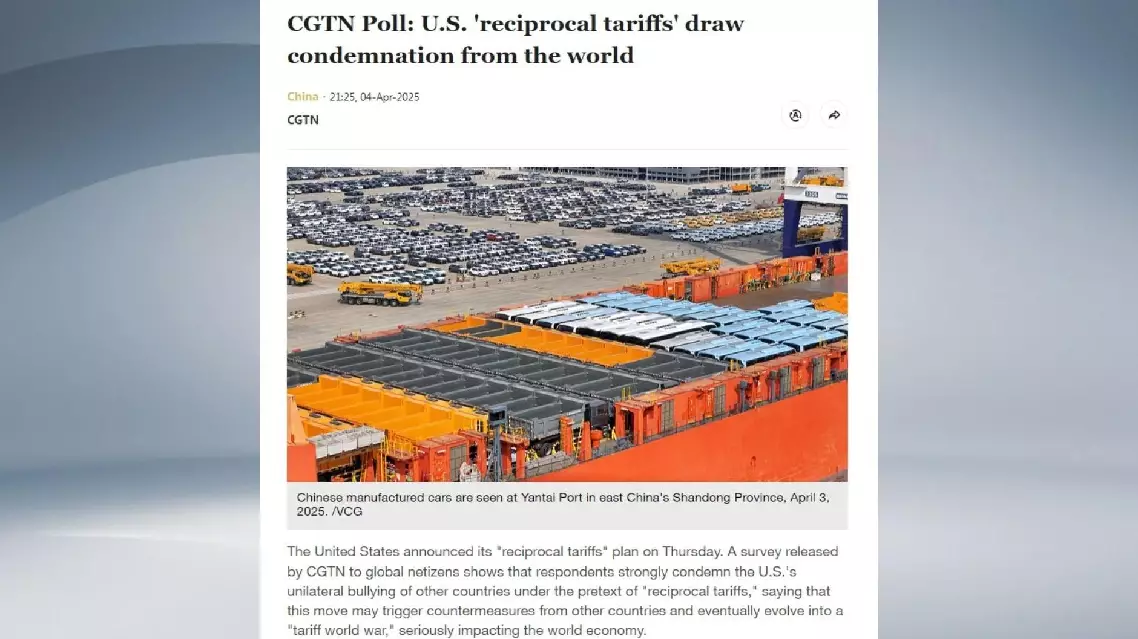
CGTN poll: US 'reciprocal tariffs' draw condemnation from world




